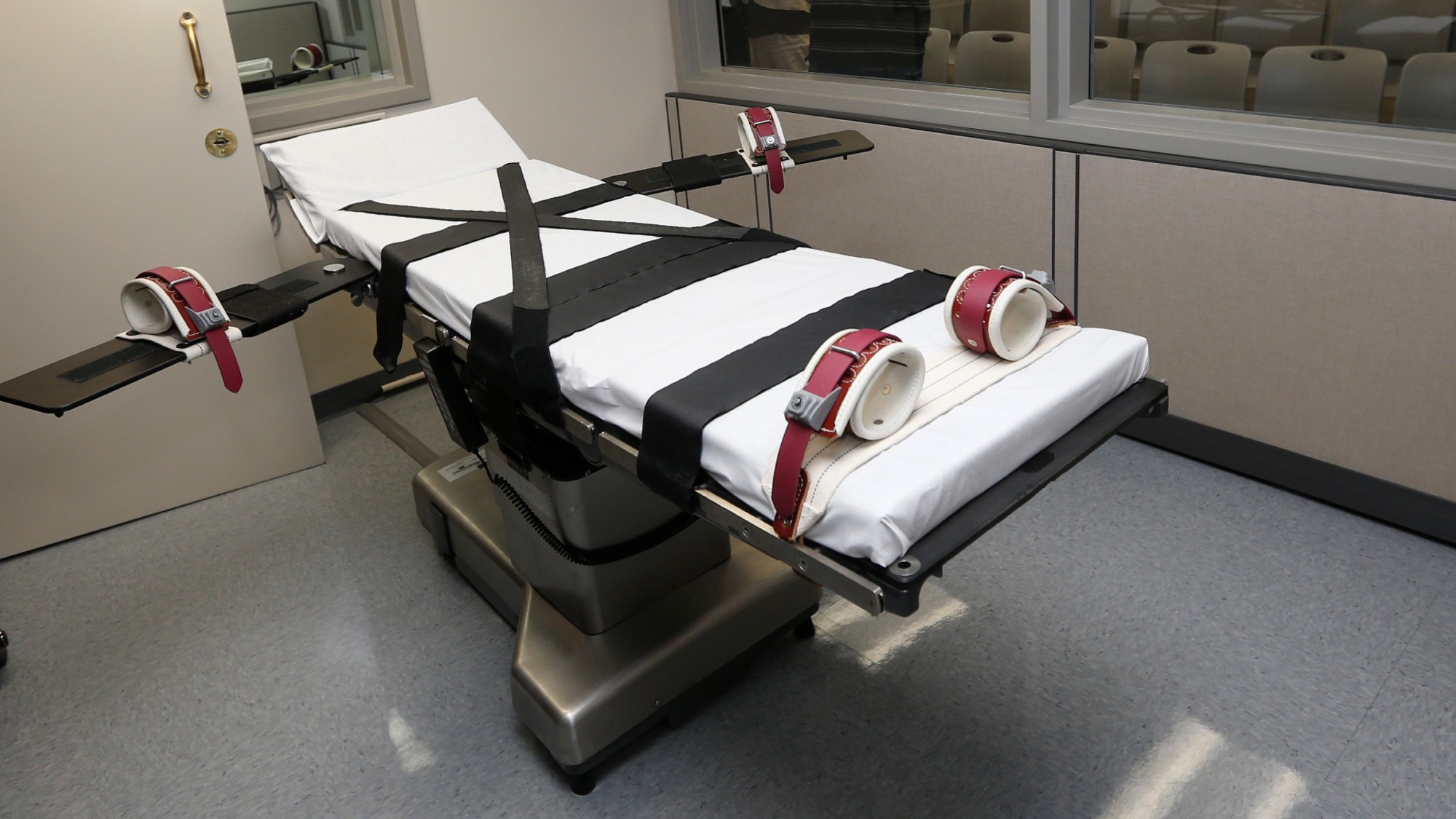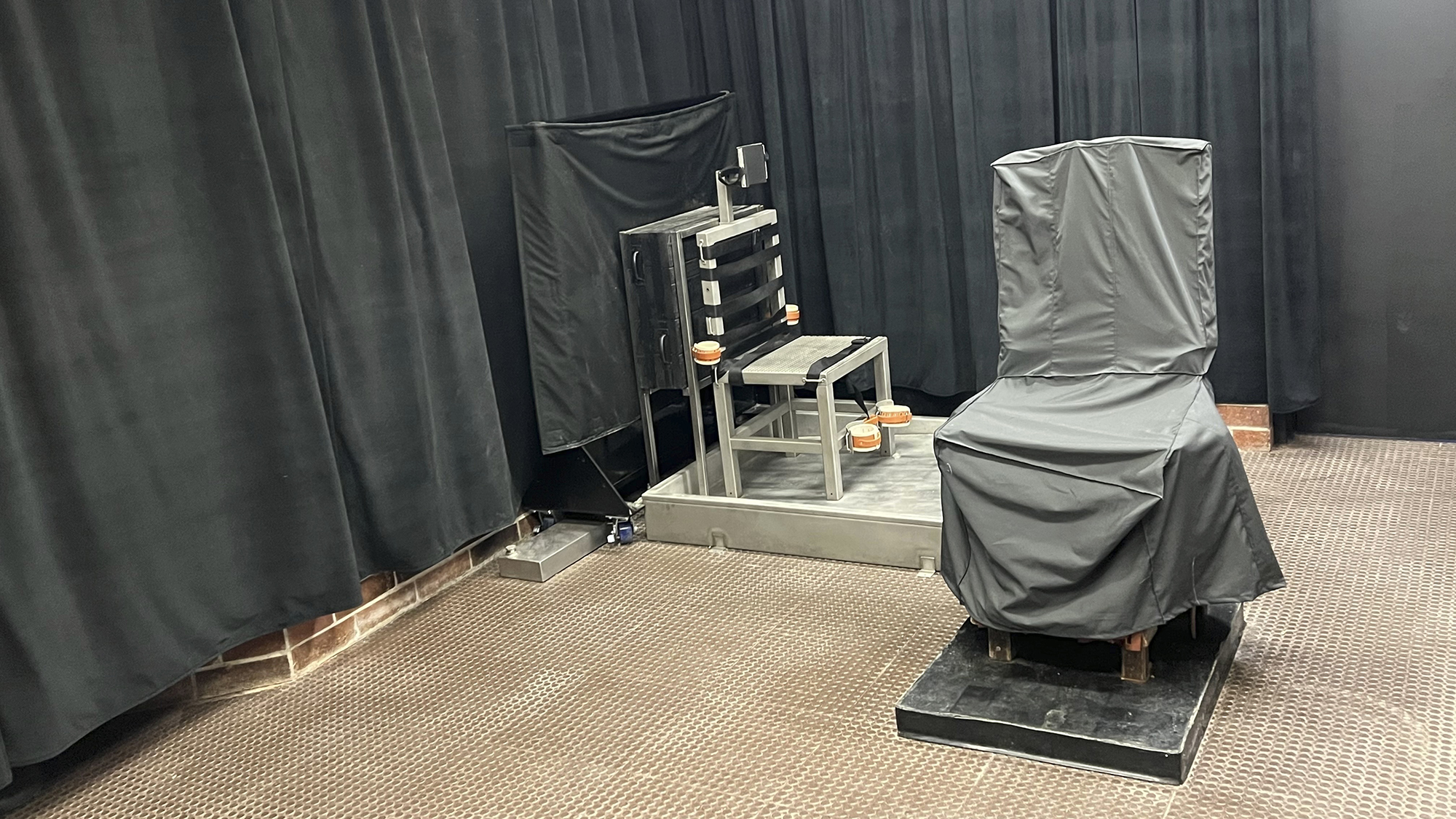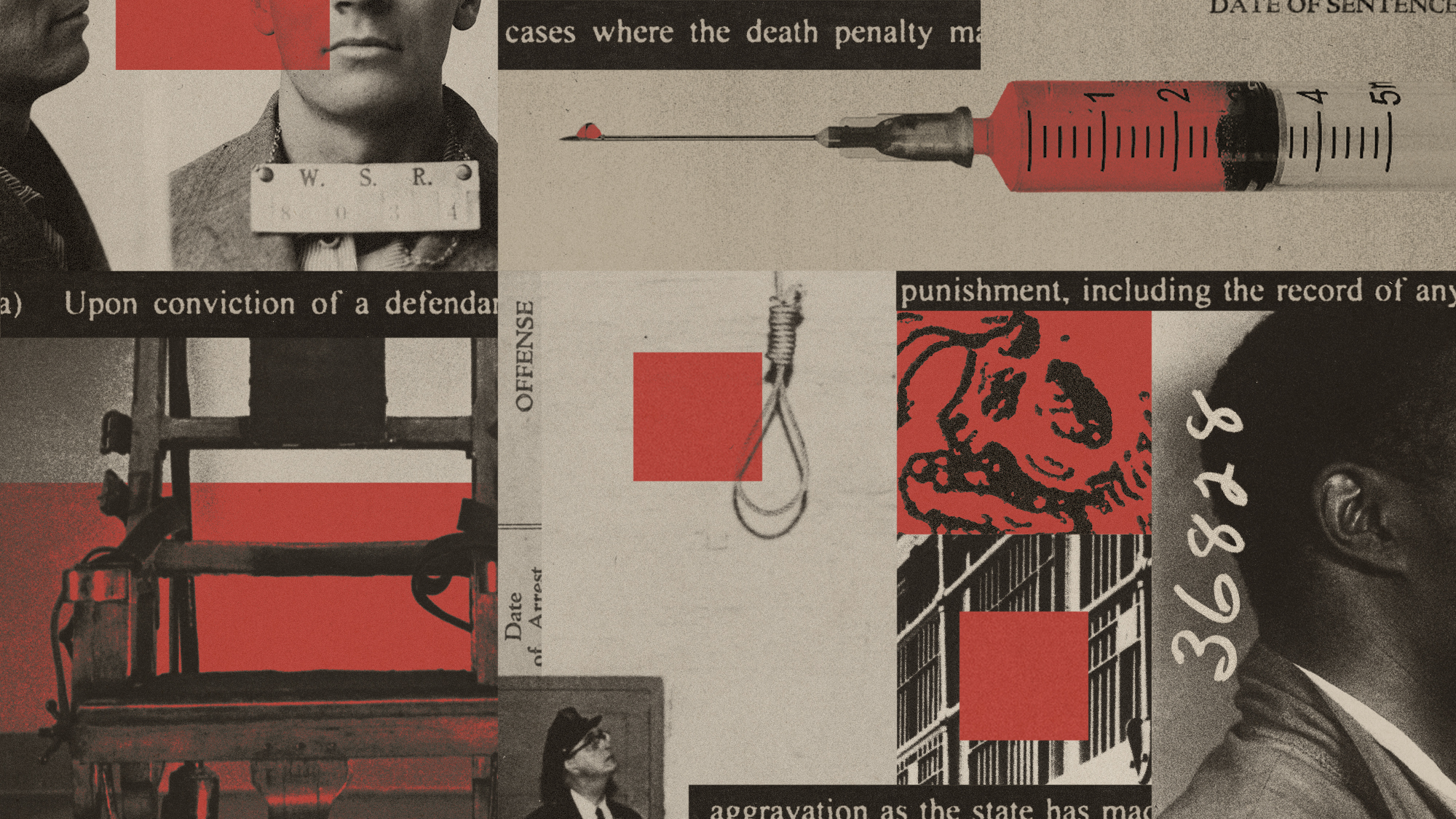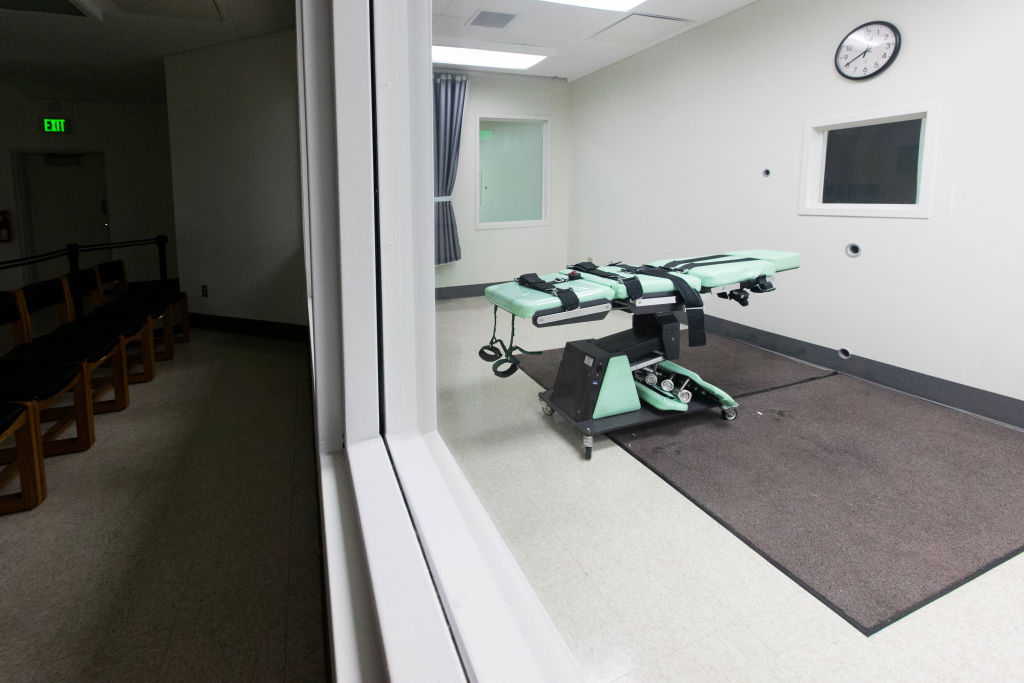Why inmates on death row are choosing the electric chair
Inmates in Tennessee are opting for electrocution because of botched lethal injection fears

A free daily email with the biggest news stories of the day – and the best features from TheWeek.com
You are now subscribed
Your newsletter sign-up was successful
A convicted murderer in the US has become the second person to be executed in the electric chair in a month, joining a growing number of inmates choosing the method over lethal injection.
David Earl Miller was one of four death row inmates in Tennessee this year to choose electrocution, as the number of botched lethal injections increases.
Miller was sentenced to death in May 1981 for the murder of a mentally disabled 23-year-old, he had spent 36 years living on death row, more than any living Tennessee inmate.
The Week
Escape your echo chamber. Get the facts behind the news, plus analysis from multiple perspectives.

Sign up for The Week's Free Newsletters
From our morning news briefing to a weekly Good News Newsletter, get the best of The Week delivered directly to your inbox.
From our morning news briefing to a weekly Good News Newsletter, get the best of The Week delivered directly to your inbox.
According to the BBC, Tennessee department of correction speaker Tylee Tracer said Miller’s last words were: “Beats being on death row”.
Lethal injection is the state's main method of execution, however Tennessee inmates who were convicted before 1999 can choose the electric chair instead.
Miller and inmate Edmund Zagorski, who was electrocuted earlier this month, “cited the botched injection of Billy Ray Irick as their reason for choosing electrocution”, says Vox.
In 2009, European pharmaceutical companies “stopped supplying lethal injection drugs to the US. Since then, the US Department of Corrections has relied on a cheap alternative three-drug cocktail”, reports The New York Times. The sedative portion of the cocktail, midazolam, has failed to sedate 7.1 per cent of 1,000 prisoners who received this injection, including most recently Irick.
A free daily email with the biggest news stories of the day – and the best features from TheWeek.com
Irick was executed on 9 August for a 1985 rape and murder and was the first to receive midazolam in Tennessee. The inmate did not respond well to the drug, and instead was reported to have suffered excruciating pain as he died.
“He made a sound, like a choked gasp, and strained against the restraints. Then a movement with his head, then nothing”, reporter Steven Hale, a witness to the execution, told the Washington Post.
The Tennessee Supreme Court has scheduled four executions for 2019 and two more for 2020.
-
 Film reviews: ‘Wuthering Heights,’ ‘Good Luck, Have Fun, Don’t Die,’ and ‘Sirat’
Film reviews: ‘Wuthering Heights,’ ‘Good Luck, Have Fun, Don’t Die,’ and ‘Sirat’Feature An inconvenient love torments a would-be couple, a gonzo time traveler seeks to save humanity from AI, and a father’s desperate search goes deeply sideways
-
 Political cartoons for February 16
Political cartoons for February 16Cartoons Monday’s political cartoons include President's Day, a valentine from the Epstein files, and more
-
 Regent Hong Kong: a tranquil haven with a prime waterfront spot
Regent Hong Kong: a tranquil haven with a prime waterfront spotThe Week Recommends The trendy hotel recently underwent an extensive two-year revamp
-
 Executions are on the rise in the US after years of decline
Executions are on the rise in the US after years of declineThe Explainer This year has brought the highest number of executions in a decade
-
 Judge rejects top state charges in Mangione case
Judge rejects top state charges in Mangione caseSpeed Read If convicted, Mangione faces up to life in state prison
-
 South Carolina to execute prisoner by firing squad
South Carolina to execute prisoner by firing squadspeed read Death row inmate Brad Sigmon prefers the squad over the electric chair or lethal injection, his lawyer said
-
 Texas set to execute dad in disputed 'shaken baby' case
Texas set to execute dad in disputed 'shaken baby' caseSpeed Read Robert Roberson's hotly contested execution would be the first ever tied to shaken baby syndrome
-
 Missouri executes man despite DA's objection
Missouri executes man despite DA's objectionSpeed Read Marcellus Williams maintained his innocence and the killing was opposed by the victim's family
-
 Iwao Hakamada: Japan's record-breaking death row prisoner
Iwao Hakamada: Japan's record-breaking death row prisonerUnder the Radar Former boxer spent 46 years condemned to execution but his retrial could clear his name
-
 Pros and cons of using the death penalty
Pros and cons of using the death penaltyPros and cons MP calls for ‘legally binding referendum’ as new poll shows more Britons support bringing back capital punishment than oppose it
-
 Death penalty: U.S. carried out historically few executions in 2022, but 1 in 3 were 'botched'
Death penalty: U.S. carried out historically few executions in 2022, but 1 in 3 were 'botched'Speed Read